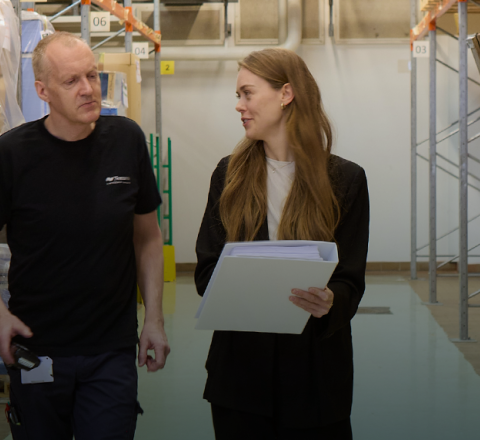Denmark's largest pharmaceutical wholesaler
Nomeco operates three distribution centres located in Copenhagen, Odense and Aarhus. These distribution centres act as logistical hubs for the supply of pharmaceuticals to pharmacies, hospital pharmacists and retailers throughout Denmark and the Faroe Islands. The geographical location of our distribution centres means that all pharmacies in Denmark can be reached within a short time frame of just two hours.
Nomeco is a full-line wholesaler. This means that we supply a wide range of products that pharmacies demand. This means that we carry and supply all the medicines that are authorised on the Danish market. At the same time, we are also product-neutral, which means that our sales are driven by the pharmacies' demand.
Our daily collaboration with suppliers in the pharmaceutical industry
Nomeco's purchasing department is responsible for purchasing all pharmaceuticals and branded products for Nomeco wholesale for resale to private and hospital pharmacies and retail. Our goal is to ensure that we always have the products in stock that our customers need.
Procurement of products
We are a key partner in the healthcare supply chain. Our network includes almost all pharmaceutical suppliers in the Danish market, ensuring a continuous supply of products directly from production or via centralised warehouses.
A significant proportion of the products we purchase are delivered from Nomeco HealthCare Logistics' pre-wholesale warehouse. This choice by many pharmaceutical suppliers reflects our ability to optimise delivery, underlining our commitment to providing exceptional service and quality.
Are you interested in learning more about Nomeco wholesaling, or would you like to know more about how you can become a supplier and get your products to the Danish market through Nomeco?
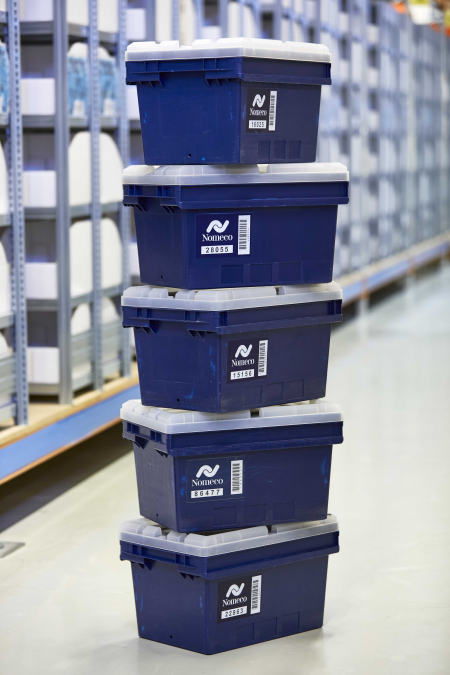
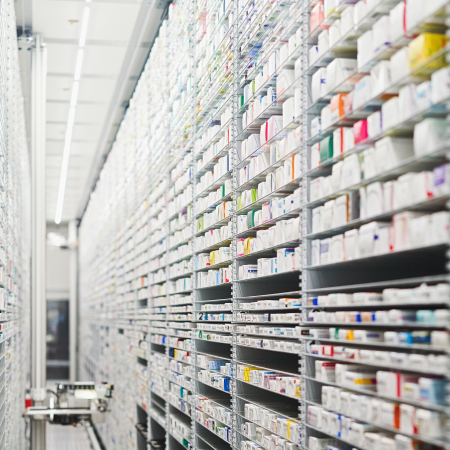
Extensive product range
If you are new to the Danish market and want to get your product into pharmacies, Nomeco is the ideal partner for you. As a neutral partner, Nomeco distributes the medicines that have received official marketing authorisation from the Danish Medicines Agency and are active on www.medicinpriser.dk. As the Danish Medicines Agency updates the range every fortnight, we work hard to keep up to date with these changes, which requires close collaboration with the pharmaceutical suppliers.
In addition to medicines, our range also includes over-the-counter products such as branded products and medical devices that do not fall into the pharmaceutical category. Nomeco's assortment department independently assesses which of these products are included in our range based on a number of criteria, including pharmacy demand and quality.
Nomeco offers a wide range of products spanning more than 15,000 item numbers. This includes approximately 7,000 human medicines, 800 veterinary medicines and approximately 7,000 over-the-counter products, including dietary supplements, skincare and hygiene products. Our range also includes non-registered medicines (IRS), which can be prescribed by doctors after specific authorisation from the Danish Medicines Agency.
Our product range therefore covers everything that pharmacies need on a daily basis, from pharmaceuticals, skincare, toiletries and hygiene products, to dental care, nursing supplies, food supplements and nutritional products.
What you need to know as a pharmaceutical supplier
Prescription and OTC medicines are sold at the same price in all Danish pharmacies, and pharmaceutical suppliers are obliged to maintain the price of the medicine for 14 days at a time. This means that pharmaceutical suppliers can change prices every 14 days. The medicine that ends up with the cheapest price will have the right to be offered in pharmacies during the next 14-day price period, as the pharmacy must offer the cheapest product to the consumer. The Danish Medicines Agency publishes current prices on www.medicinpriser.dk - also what we colloquially call the ‘Tariff’.
The importance of precise logistics cannot be emphasised enough. Through an optimal flow, Nomeco must receive and distribute goods in a timely manner to ensure that the right products are present at the country's pharmacies when a new price period comes into effect.
For further details about the system and its impact on the market, visit the Danish Medicines Agency's website for comprehensive information about pharmacies and medicine sales.
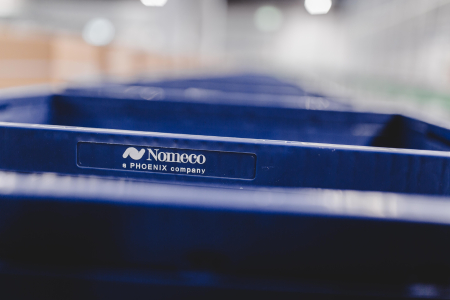
It is possible to change prices of medicines and introduce new medicines every 14 days on Medicinpriser.dk. It is your responsibility as a pharmaceutical supplier, whether you are a manufacturer or importer, to ensure that Nomeco receives information about price changes and the introduction of new medicines in a timely manner so that we can ensure that the product can be created, purchased, received and distributed to the country's pharmacists and hospital pharmacists in a timely manner.
Please use and fill out Nomeco Wholesaler's Master Data Sheet, which specifies the information Nomeco must have in order to ensure that your products are ready for sale on the Danish market. The Master Data Sheet should be sent to productinfo@nomeco.dk, where Commercial Support is ready to help you.
- When introducing new medicines, you can see in the Master Data Sheet which information Nomeco must be informed about. This must be done 13 days before the medicine is introduced in www.medicinpriser.dk (the tariff).
- Price changes on non-pharmacy-reserved medicines must be notified to Nomeco no later than 13 days before the new price comes into effect - preferably earlier.
- If the AIP of a medicine increases by more than 10%, this must be notified separately (found in the Master Data Sheet). This must be notified no later than Wednesday at 8:00 am, five days before the new price comes into effect.
If you are a supplier without a physical presence in Denmark, Nomeco is responsible for reporting packaging data in accordance with the EU rules on Extended Producer Responsibility (EPR). This requires that Nomeco always has updated information regarding packaging on your products.
Download the packaging form here.
What else is required of you as a supplier?
- Information about new products, including packaging data per item number no later than 13 days before the product is introduced on the Danish market.
- Information to Nomeco if the packaging of an existing product is changed. In this connection, state the month from which the new packaging will be used - together with updated packaging data.
The processing of incoming goods invoices is handled by Nomeco's creditor team. When sending an invoice to Nomeco wholesaler, it must be sent electronically via EDI. If this is not possible, invoices can be sent as PDF files via email to invoice@nomeco.dk. It is important that each file contains only one invoice and that the invoice complies with Nomeco's Conditions for Deliveries.
To ensure consistency between the issued invoice and the actual price at the time of delivery, it is important that the invoice date is the day Nomeco wholesaler receives the goods. This prevents price differences due to tariff changes between the invoice issue and the delivery date.
Companies that manufacture, import or sell medicines in Denmark set the prices of the medicines. The rules dictate that prescription medicines and the types of OTC medicines that can only be sold in pharmacies are sold at the same price in all pharmacies in Denmark.
Prices for herbal medicines and the types of OTC medicines that can be sold in stores other than pharmacies, such as supermarkets and kiosks, are allowed to vary. These prices are set by the store, so you may find that retail prices differ from store to store.
Prescription and OTC medicines are sold at the same price in all Danish pharmacies, and pharmaceutical suppliers are obliged to maintain the price of the medicine for 14 days at a time. This means that pharmaceutical suppliers can change prices every 14 days. Price changes must be submitted to the Danish Medicines Agency via the DKMAnet notification system. The medicine that ends up with the cheapest price will have the right to be offered at pharmacies for the next 14-day price period, as the pharmacy must offer the cheapest product to the consumer. The Danish Medicines Agency publishes current prices at www.medicinpriser.dk.
The 14-day tariff model and free competition creates intense price competition and frequent price changes. As pharmacies are generally obliged to dispense the cheapest version of substitutable medicines, this leads to significant fluctuations in drug sales and frequent returns.
Nomeco has the necessary logistical infrastructure to effectively handle the frequent price adjustments and returns that the Danish pricing model entails. Nomeco therefore makes agreements with pharmaceutical suppliers regarding the handling of price adjustments and returns and also facilitates the agreements made with pharmacies on behalf of the suppliers to ensure a smooth handling of these adjustments and returns.
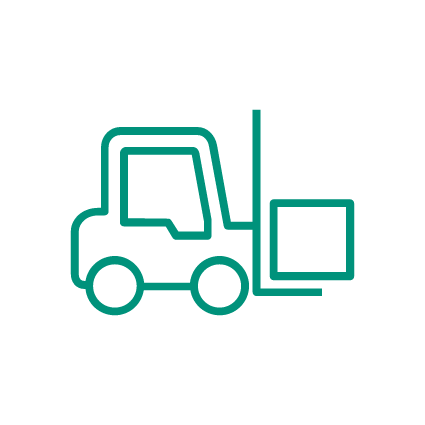
How to deliver products
When delivering your products to Nomeco Wholesale, there are a number of guidelines you need to be aware of. To ensure optimal and smooth receiving, storage and distribution of your products, you as a supplier are obliged to follow the guidelines that are part of the ‘Conditions for Deliveries’.
‘Conditions for Deliveries’ regulates the conditions that must be in place before, during and after the delivery of your products. In a market with constant supply difficulties, we guarantee a minimal time-to-market distribution, which we can better ensure if these guidelines are followed. On a daily basis, we do everything we can to reduce delays and complications and create the best possible stable supply chain.
The address of our head office is Borgmester Christiansens Gade 40, 1790 Copenhagen V. Our building is located on the corner of Borgmester Christiansens Gade and Scandiagade.
The goods reception has access from Scandiagade 35, 2450 Copenhagen SV, which is covered by Nomeco's licence, as shown in this picture and this document.
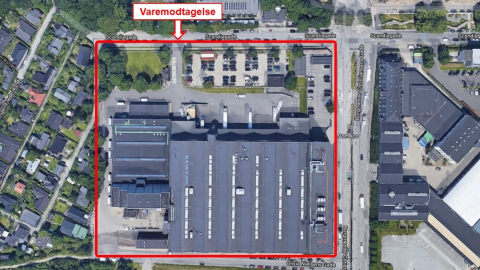

Notification of Supply Failures
The two pharmaceutical wholesalers in Denmark are required to inform the Danish Medicines Agency (Lægemiddelstyrelsen) daily if they are unable to supply an item number listed on the current list of medicine prices ("Medicinpriser").
The Danish Medicines Agency uses these notifications to set new reimbursement prices in substitution groups where the cheapest medicine is unavailable. As a pharmaceutical supplier, you will be informed by email about the supply failures that the wholesaler Nomeco intends to report at 12:00 PM. This notification is sent two hours after you, as a supplier, receive the information.
Non-registered medicines (IRS) in Denmark
IRS refers to medicines that are not officially authorised for marketing in Denmark. However, under certain circumstances, these medicines can be sold and dispensed within the country, provided that a specific dispensing authorisation has been granted by the Danish Medicines Agency. Doctors, veterinarians and dentists in Denmark can apply for such an authorisation, which enables the use of these medicines under controlled conditions.
In order for Nomeco wholesaler to handle the distribution of an IRS product, the supplier is required to officially inform both Nomeco and the Danish Medicines Agency of the entity responsible for importing the product into Denmark. The responsible importer must be in possession of a specific §39 authorisation issued directly by the Danish Medicines Agency. For further information about the process, interested parties can contact Nomeco's Commercial Affairs department via wholesale@nomeco.dk.
If you would like to distribute an IRS product through Nomeco wholesale, it is necessary to submit a detailed application. This initiates an evaluation of the product to determine potential demand, as well as assess whether the product is already available in Nomeco's range. Furthermore, both pricing and security of supply will be carefully reviewed as part of this process.
Managing discounts for hospital pharmacies
If a pharmaceutical company enters into an agreement with e.g. Amgros, which negotiates prices on behalf of the regions for the purchase of drugs at special discounts, Nomeco is ready to manage these discounts for you.
In practice, this involves a monthly post-invoicing where the difference between the AIP and the agreed price with the hospital pharmacies, known as the Hospital Pharmacy Purchase Price (sAIP), is settled.
To ensure correct sAIP prices, please send relevant information to tenderprices@nomeco.dk. Our team will then ensure that the prices are updated in our IT systems. We are equipped to manage sAIP prices for both public and private hospital pharmacies, ensuring a seamless process.
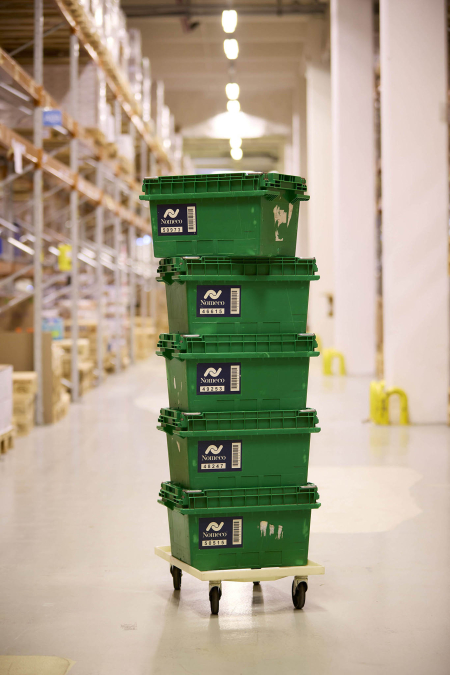
The Danish market
Understand how the Danish pharmaceutical market works with its fortnightly pricing system, divided between the primary and secondary sectors. In Denmark, pharmacies have the exclusive right to sell prescription drugs to consumers. A wide range of OTC medicines is also available in pharmacies.
Almost all medicines in Denmark are distributed to pharmacies by one of Denmark's two full-range wholesalers, Nomeco Wholesale and Tjellesen Max Jenne (TMJ). For suppliers who want broad distribution of their products across the country's pharmacies, co-operation with both wholesalers is essential.
The primary sector is the part of the Danish healthcare system that is administered outside of hospitals (i.e. pharmacists and retail). The following focuses on pharmacies.
A pharmacy is run by a person who has been authorised by the Danish Medicines Agency. The Danish Medicines Agency is therefore also responsible for the legislation that pharmacies are subject to and the framework for pharmacies' finances.
The staff at the pharmacies consists primarily of pharmacists and pharmacy technicians. In addition to advising and answering questions from citizens, pharmacies often offer a number of services such as medication collection with citizens with chronic diseases, handling dose dispensing (packaged medicine directly to the citizen so that it is easier to dose), issuing pill passports (Schengen certificates), receiving leftover medicine, etc.
Once a year, in April, pharmacies must report their pharmacy accounts to the Danish Medicines Agency. In addition, Danish pharmacists are required to pay various fees to the Danish Medicines Agency but also receive reimbursements for the extra services provided.
The Danish Medicines Agency is also responsible for the supervision and control of pharmacies. The Danish Medicines Agency conducts regular inspections of pharmacies and ensures compliance with relevant legislation.
There are rules about which products Danish pharmacists are allowed to sell, and this is regulated in the so-called ‘positive/negative list’. In general, the list is intended to allow pharmacists to manufacture and sell products other than medicines that are natural to sell in a pharmacy.
The primary sector in Denmark operates through a multi-channel system where products are distributed via the two full-range wholesalers. Nomeco wholesaler supplies approximately 75% of the products demanded by private pharmacies, while TMJ is responsible for the remainder. Both wholesalers play a critical role in the daily operations of the pharmacies.
In addition to pharmacy-reserved medicines, Nomeco also distributes liberalised medicines, veterinary medicines and the free trade products that pharmacies demand as part of their range.
Hospital pharmacies, which are administered by Denmark's five regions and funded by the Danish government, operate in parallel. Like private pharmacies, hospital pharmacies purchase medicines at AIP prices set by suppliers.
In addition to purchasing medicines at fixed AIP prices, most of the hospitals' medicines are purchased at discounted prices obtained through public tenders. The public tenders are handled by Amgros, which organises tenders for pharmaceuticals and hearing aids on behalf of the regions. Nomeco can of course handle this type of distribution and handling of the discounted prices to Amgros.
In Denmark, it is the Danish Medicines Council that assesses whether new drugs and new indications for an existing drug can be recommended as standard treatment in Danish hospitals. The Danish Medicines Council uses the international unit of measurement QALY (quality-adjusted life years) to assess the effect of new medicines. Once the Danish Medicines Council has completed a clinical and health economic evaluation, Amgros negotiates the price of the product with the supplier. The Danish Medicines Council then assesses whether the price negotiated by Amgros is reasonable in relation to efficacy and may ultimately recommend the drug as a possible standard treatment.
If you are a new supplier to the secondary sector in the Danish market, you usually need to contact Amgros. Read more on Amgros' website.
